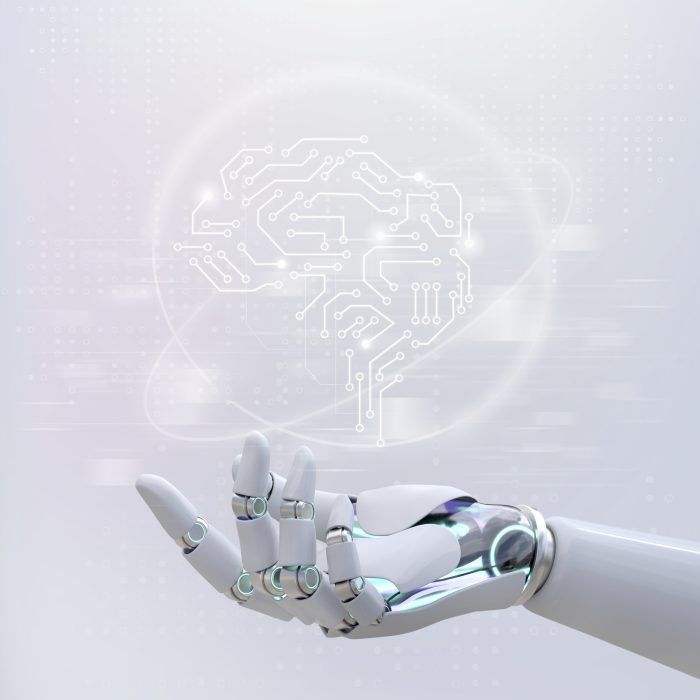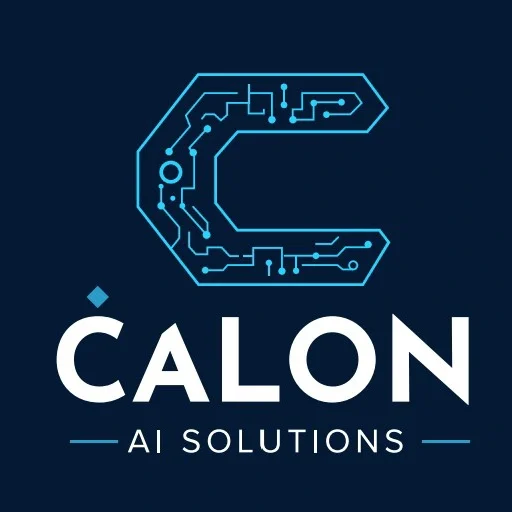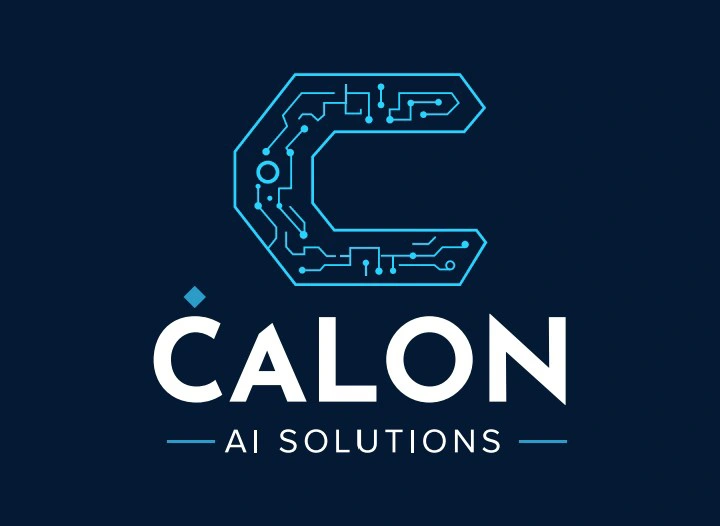1. Introduction
Company Overview and Industry Context
TechPro Solutions is a mid-sized B2B software company specializing in enterprise resource
planning (ERP) software tailored for the manufacturing sector. For over a decade, the company
had offered solutions that helped manufacturers streamline operations, reduce waste, and
improve supply chain efficiencies. Their core product offerings included modules for inventory
management, production planning, and logistics optimization, all of which catered to the unique
needs of manufacturing firms of varying sizes.
As the manufacturing industry embraced digital transformation, demand for ERP solutions grew
rapidly. However, the industry landscape also became more competitive, with an influx of new
players, as well as established competitors like SAP and Oracle, dominating market share. While
TechPro Solutions had a loyal customer base, they struggled to expand and penetrate new
market segments due to evolving customer expectations and a more saturated competitive
environment.
Initial Marketing Challenges
Initially, TechPro Solutions relied heavily on traditional marketing strategies such as cold
outreach (emails and phone calls), trade show exhibitions, and generic online advertising. These
methods, which had worked reasonably well in the company’s early stages, started yielding
diminishing returns. There were several key challenges the company faced:
• Limited Targeting: TechPro’s marketing approach lacked precision. Marketing teams
used broad campaigns that didn’t distinguish between large enterprise prospects and smaller
mid-market manufacturers. This generic targeting led to poor engagement from key decisionmakers such as CIOs, COOs, and procurement managers.
• Unfocused Messaging: The marketing content was often not tailored to the unique pain
points of potential clients. For example, smaller manufacturers wanted solutions that emphasized
cost-effectiveness, while larger firms were more concerned with scalability and advanced
automation. However, TechPro’s messaging failed to address these nuanced needs effectively.
• Increasing Costs with Limited Returns: With rising marketing expenditures, the
company noticed its customer acquisition costs increasing without a corresponding increase in
high-quality leads or conversions. The return on marketing investment (ROI) had significantly
dropped over the last two years.
Faced with these issues, TechPro Solutions realized that traditional marketing methods were no
longer sustainable. They needed a more data-driven approach to marketing, one that could more
accurately identify and target the right customers while delivering personalized content that
resonated with their unique needs. AI presented itself as the solution to transform their
marketing strategy.
2. Challenges
Customer Segmentation and Personalization
The most pressing issue for TechPro Solutions was their inability to properly segment their
customer base and deliver personalized experiences. Manufacturing firms differ greatly in size,
complexity, and needs. For instance, a small-scale manufacturer with under 50 employees might
only require basic ERP features, while a large multinational with multiple production facilities
would need more sophisticated solutions such as advanced supply chain management and AIpowered predictive maintenance.
However, TechPro Solutions’ marketing team was sending out generic messaging to all
prospects, failing to differentiate between the pain points and needs of different customer
segments. Without proper segmentation:
• Marketing teams struggled to prioritize leads based on their value.
• Messaging was too generic, leading to low engagement.
• Resources were often wasted on unqualified or irrelevant leads.
This lack of precision significantly reduced the effectiveness of their campaigns.
Inefficient Marketing Spend and Lack of Insights
Beyond segmentation, TechPro’s marketing efforts were plagued by inefficiencies in resource
allocation. The company’s marketing team found it difficult to determine which campaigns were
delivering the best ROI. They had no reliable mechanism to assess which advertising channels
were most effective, which customer segments were worth pursuing, and which messaging
resonated best with their audience.
For instance, the company was allocating considerable marketing dollars to Google Ads and
LinkedIn campaigns without sufficient insights into whether these channels were effectively
targeting the right decision-makers. While some leads trickled in, the marketing budget was
spread thin across several initiatives, with no clear strategy for resource prioritization.
Furthermore, marketing team members were bogged down by the manual process of crafting
emails, creating social media content, and optimizing landing pages. This lack of automation
meant they couldn’t scale campaigns effectively or personalize their outreach, limiting the
number of prospects they could engage meaningfully.
3. Solution
Introduction of AI-Enhanced Marketing
TechPro Solutions recognized that an AI-driven marketing strategy was key to addressing their
segmentation, personalization, and efficiency challenges. They partnered with a marketing
technology firm specializing in AI-powered solutions to overhaul their marketing approach.
AI-Driven Customer Segmentation
At the core of the solution was AI-based customer segmentation. Using machine learning
algorithms, TechPro was able to mine large datasets to identify patterns in customer behavior.
These datasets included historical sales data, web analytics, customer interactions, and thirdparty industry reports. With this data, the AI system segmented customers into specific, highvalue categories based on various factors such as:
• Company size.
• Industry type (e.g., automotive manufacturing vs. consumer goods manufacturing).
• Previous interactions with marketing content.
• Propensity to adopt new technologies.
For example, small manufacturers who had engaged with content related to cost savings were
grouped into a segment that received tailored messaging around affordability and ease of
implementation. In contrast, larger enterprises that had shown interest in automation solutions
were targeted with messaging about scalability and sophisticated ERP modules.
Personalized Content Creation
AI-powered Natural Language Processing (NLP) tools were implemented to automatically
generate personalized content tailored to each customer segment. These tools analyzed
customer data to create hyper-relevant content that addressed the specific pain points of each
segment. Instead of generic email blasts, TechPro Solutions began sending personalized emails
that spoke directly to the concerns of the recipient. For instance:
• Smaller manufacturers received case studies demonstrating how TechPro’s ERP could
reduce operational costs by 15%.
• Large enterprises were sent white papers on how AI-enhanced ERP modules could
improve productivity by integrating with their existing IoT infrastructure.
This personalized approach was extended across all marketing channels, including social media
ads, blogs, and even website landing pages. Each customer segment saw content that was
relevant to their business size, industry, and specific needs.
AI-Driven Campaign Optimization and Automation
The third pillar of the solution was AI-driven campaign automation. TechPro Solutions
implemented machine learning algorithms to track the performance of each marketing campaign
in real time. This automation allowed the company to:
• Allocate resources dynamically: Marketing budgets were automatically adjusted to
focus on campaigns and channels delivering the best ROI. For instance, if LinkedIn ads were
underperforming compared to Google Ads, AI would reduce LinkedIn spend and increase Google
Ads investment.
• Optimize content and timing: The AI system analyzed customer interactions (clicks,
downloads, etc.) and optimized the content and timing of follow-up emails, ads, and offers. If a
particular email template had a higher open rate, that format was used across similar campaigns.
• Predictive analytics: The AI predicted which prospects were most likely to convert
based on past behavior and engagement metrics, allowing sales teams to focus their efforts on
high-value leads.
4. Implementation
Step-by-Step Process
1. Data Collection and Preparation: TechPro Solutions began by gathering data from a
variety of sources, including CRM records, website visitor behavior, email campaign
performance, and third-party databases. This data was cleaned, standardized, and fed into the
AI system, allowing for accurate analysis and segmentation.
2. AI Integration with CRM and Marketing Systems: The AI marketing platform was
integrated with TechPro’s existing CRM and marketing automation tools. This integration was
seamless, allowing data to flow between systems in real time, enhancing decision-making
processes.
3. Customer Segmentation Analysis: The AI system used clustering algorithms to identify
distinct customer segments based on multiple variables, such as purchase history, engagement
with past campaigns, and company demographics.
4. Personalized Campaign Development: The AI-driven personalization engine created
tailored marketing content for each segment. Marketing teams tested various messaging
strategies across different channels to ensure relevance and resonance with their target
audience.
5. Automation of Campaign Management: Machine learning algorithms automated the
optimization of campaigns, adjusting resource allocation and targeting based on real-time
performance metrics. Marketing managers were freed from manual, repetitive tasks, allowing
them to focus on strategy and creativity.
Challenges Faced During Implementation
• Data Compatibility: One challenge during implementation was integrating the AI tools
with TechPro’s legacy CRM system. The data formats needed to be aligned to ensure seamless
integration and accurate analysis. This required additional support from the CRM vendor.
• Team Resistance: Another significant challenge was initial resistance from the
marketing team. Many were concerned that AI would replace their roles, and others were
unfamiliar with how to use AI-driven tools. TechPro Solutions addressed this by conducting
training workshops that emphasized how AI could augment their efforts rather than replace
them. Once the team saw the benefits, resistance diminished, and adoption increased.
Timeline of Key Milestones
• Month 1: Data collection and integration of AI tools with existing systems.
• Month 2: Customer segmentation and the launch of personalized marketing
campaigns.
• Month 3: Full deployment of AI-driven automation tools for campaign optimization.
• Month 4-6: Continuous optimization of campaigns and fine-tuning of AI algorithms to
improve accuracy in predicting high-value leads.
• Month 6: TechPro Solutions achieved a 30% increase in overall sales.
5. Results
Measurable Outcomes
The implementation of AI-enhanced marketing strategies produced significant improvements
across several key performance indicators (KPIs):
1. 30% Increase in Overall Sales: The precision of AI-driven segmentation and
personalization efforts resulted in a dramatic 30% increase in sales over the first six months of
implementation.
2. 40% Improvement in Lead Conversion: AI allowed TechPro to focus on high-value
leads, improving the quality of their outreach and significantly increasing the percentage of leads
that converted into paying customers.
5. Results (Continued)
3. 50% Improvement in Marketing ROI: With the ability to allocate resources dynamically
based on real-time performance data, TechPro Solutions was able to cut down on wasted
marketing spend and focus on channels and campaigns that delivered the highest returns. This
led to a 50% improvement in marketing ROI compared to pre-AI efforts. AI helped identify the
most lucrative customer segments, enabling the company to prioritize marketing spend on those
segments while reducing costs on underperforming channels.
4. 20% Increase in Customer Engagement: Personalized content tailored to the unique
needs and preferences of different customer segments led to a significant increase in
engagement across various touchpoints. Email open rates and click-through rates improved, as
did interactions with social media ads and website content. By sending the right message at the
right time, TechPro’s engagement metrics showed sustained growth over the six-month period.
5. Reduction in Sales Cycle Length: AI’s ability to predict customer behavior and qualify
leads effectively meant that the sales team was spending more time engaging with prospects
who were closer to making purchasing decisions. This led to a measurable reduction in the
average sales cycle length, allowing TechPro to close deals faster and improve overall efficiency.
Data and Statistics Supporting the Results
• Open rate for personalized emails increased by 35%: AI-optimized email campaigns
sent to segmented lists had significantly higher open rates compared to generic email blasts
used prior to AI integration.
• Click-through rates (CTR) on personalized ads grew by 45%: Ads targeted to specific
customer segments using AI-driven insights saw a marked improvement in CTR, leading to more
qualified leads engaging with the company’s content.
• Lead qualification accuracy improved by 60%: AI’s predictive analytics accurately
identified high-value leads, allowing sales teams to focus their efforts on opportunities most
likely to convert.
• Resource reallocation resulted in 30% lower cost per lead: By focusing marketing
spend on the highest-performing channels and segments, the cost of acquiring new leads
dropped significantly.
Overall, these results demonstrated that TechPro Solutions’ adoption of AI in its marketing
strategy yielded tangible improvements in performance across the board, leading to increased
sales and operational efficiency.
6. Conclusion
Key Takeaways
The 30% increase in sales achieved by TechPro Solutions serves as a powerful testament to the
effectiveness of AI-enhanced marketing strategies. This case study highlights several critical
takeaways for other B2B companies seeking to improve their marketing efforts and overall
business performance:
1. Advanced Customer Segmentation is Key: AI-driven segmentation allowed TechPro
Solutions to break down their broad customer base into more specific, high-value groups. This
ensured that marketing efforts were laser-focused on the right audience, leading to better
conversion rates and more effective resource allocation.
2. Personalization Drives Engagement: The ability to deliver personalized content at scale
was a game-changer. By addressing the unique pain points of each customer segment,
TechPro’s marketing messages became more relevant and compelling, significantly increasing
customer engagement.
3. Automation Enhances Efficiency: The use of AI-driven automation not only saved time
but also improved the overall performance of marketing campaigns. Real-time adjustments
based on campaign performance meant that TechPro could continuously optimize its marketing
efforts without relying on manual intervention.
4. Predictive Analytics Boost Lead Conversion: Predictive analytics empowered TechPro’s
sales and marketing teams to focus their efforts on the most promising leads, shortening the
sales cycle and improving the overall efficiency of sales operations. The combination of machine
learning algorithms and historical customer data allowed the company to allocate resources
where they were most likely to generate revenue.
Ongoing Growth and Future Potential
With AI tools fully integrated into its marketing operations, TechPro Solutions is now wellpositioned for sustained growth. The company is planning to expand its use of AI by
incorporating predictive customer behavior models and enhancing its personalization efforts with
adaptive content that evolves based on customer interactions. Additionally, TechPro is exploring
opportunities to apply AI insights to product development, enabling them to align their ERP
solutions more closely with customer demands.
Furthermore, as TechPro continues to refine its AI algorithms and leverage more comprehensive
data sources, the company expects to see continued improvements in customer acquisition,
engagement, and retention. This sets a strong foundation for TechPro to maintain its competitive
edge in the ever-evolving B2B software landscape.
A Model for Other B2B Companies
The success of TechPro Solutions demonstrates the vast potential that AI-driven marketing holds
for B2B companies across various industries. As seen in this case study, AI can significantly
improve the precision of customer targeting, enhance the personalization of marketing efforts,
and optimize overall campaign performance. Companies that embrace AI and data-driven
marketing strategies can expect to see similar improvements in sales, engagement


